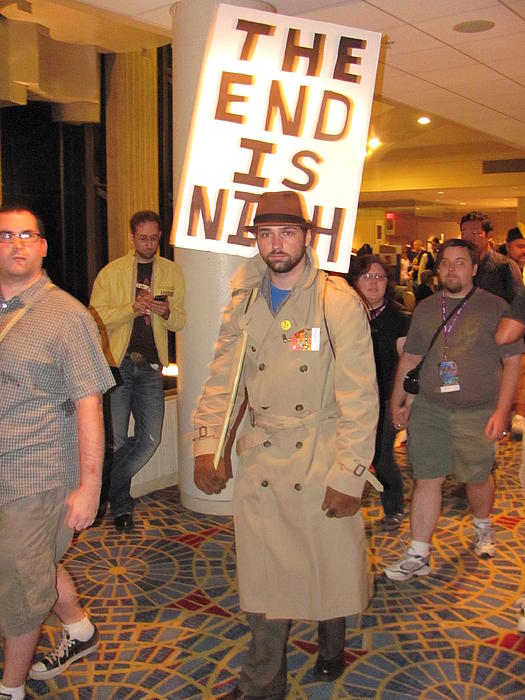One of the worst times to get an ear infection, I learnt, is the night before you present at a conference. I hardly got any sleep and I’m deaf in one ear, making my voice echo in my head.
I survived relatively unscathed and there seemed to be a good level of interest in the room so that was encouraging. I knew that I had a lot more material than I had time to present, so I went pretty quickly, and in the end managed to get through about 80% of the slides and the bulk of what I felt was important.
If you would like a copy of the presentation you can download it from here [JeffKemp_Apex_Social_Networking.pdf]. You can also download an export of the sample application “Zample” [f100_zample.zip] if you want to play with it yourself.
After that I stayed to hear Scott Wesley talk about some creative uses for conditional compilation, and heard David Peake talk about the imminent Forms Conversion process in APEX 3.2. Personally I don’t see much potential for actual forms conversion projects, but that’s because every Forms application I’ve worked on has a lot of business logic in the triggers, and “creative” uses for all the features of Forms which will never translate into APEX. I can, however, see a use for this tool to take all the forms from a legacy app and expose all that logic in APEX for analysis. It could be used to document an existing system which may save some time when designing a replacement system in APEX/JDev/whatever.
It wasn’t just David who spoke on APEX, I enjoyed Penny Cookson/Eddie Harris’s talk “How Ugly is that APEX Report?” in which she gave a few options for making reports out of APEX page regions, and more options for those who are lucky enough to have BI Publisher. They also demonstrated what you can do with Cocoon. I haven’t dabbled in APEX reports at all (most of the time I’ve made APEX applications to avoid the need for printed reports) and hadn’t heard of Cocoon.
Tim Hall spoke on PL/SQL best practices for performance, which was pitched more at a mid-level PL/SQL programmer but good none-the-less. After that, another David Peake presentation revealed the roadmap for the future of APEX. I like what I’m hearing – version 4 will enable a number of Ajax-powered features declaratively, something I’ve been looking forward to. The standout, of course, is the enhancements to the Interactive Reports which allow users to edit the data in-place. His final presentation on UI presentation techniques focused primarily on the new Interactive Reports feature that is available now in 3.1.
I decided to end the day at Scott Hollow’s talk “Babbage vs Oracle” in which he compared/contrasted the lives and times of Charles Babbage (arguably the father of computers) and Larry Ellison. Scott has a passion for computer history and it showed.
There was a session mysteriously entitled “ACEbook” which wasn’t well attended, probably because it wasn’t clear what it was about. Turns out they got together a panel of Oracle ACEs and ACE Directors and discussed being an ACE, what the difference was between ACEs and ACE Directors, and advice on contributing to the Oracle community. I had a few questions but they ran out of time so I’ll ask them here:
- What killer new feature would you like to see in Oracle 12g? and
- What super power did you gain when you became an ACE/ACE Director?
 Just a quick note to draw attention to the lineup for AUSOUG National Conference – 3-4 November at the luxurious Burswood Resort here in Perth. The usual suspects will be there, for example:
Just a quick note to draw attention to the lineup for AUSOUG National Conference – 3-4 November at the luxurious Burswood Resort here in Perth. The usual suspects will be there, for example:
